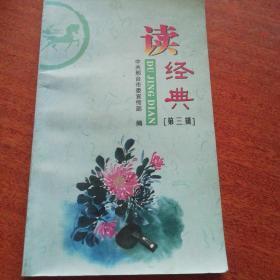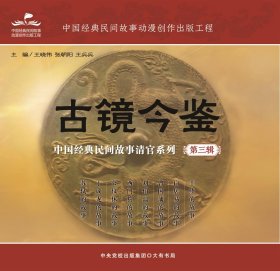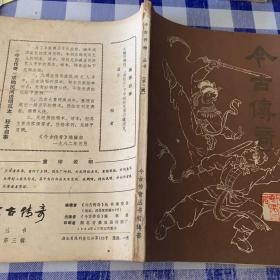
古典今读:第三辑:《论语》英文篇:The English version of Lunyu9787520301572
正版图书,可开发票,请放心购买。
¥ 55.19 6.3折 ¥ 88 全新
库存5件
作者杜祖贻,姚新中,樊浩主编
出版社中国社会科学出版社
ISBN9787520301572
出版时间2017-08
装帧平装
开本其他
定价88元
货号9062676
上书时间2024-09-19
- 店主推荐
- 最新上架
商品详情
- 品相描述:全新
- 商品描述
-
目录
Language and Text
1.The English-language Analects and Teaching Chinese Studies:
Some Reflections on Lesser-known Twentieth Century
Tra n slatio n s
2.Constructing Confucius confronting contingency in the Lunyu and the Gongyang zhuan
3.Teaching Lunyu from the National University of the Liang to the Periphery of the Tang Empire
4.Delinquent Fathers and Philology:/unyu 13.18 and Related Texts
5.On "Dao" and "Virtue"
Virtue and New Explanation of the Concept
6.On Internal Ontogenesis of Virtues in the Analects:
A Conceptual Analysis
7.Ran,g or Yielding in Respect:Reflections on a Confucian Virtue and
Its Relevance in the Cross-Strait Realpolitik
8.On the Mutually Acceptable Elements between Laozi's Ziran and Confucius's Ren
9.Ren(仁) in the Analects(Lunyu) :Sceptical Prolegomena
Morality and Re-interpretation of Belief
10.From the Universal to the Particular
-Way,Virtue and Practical Skills in the Analects
11.A Spiritual Turn in Philosophy:Rethinking the Clobal Significance of Confucian Humanism
12.Confucian Co-creative Ethics: Self and Family
13.The Construct of Heavenly Principle and the Faith in Heavenly Principlein the Analects
Wisdom and Modern Connotation
14.Philosophy and Contemporary Value of the Analect:Speech at King's College, London
15.The Wisdom of Administration in The An,alects of Confucius
16.The Analects of Confucius and Rebuilding of Modern People's Spirit
内容摘要《古典今读·第3辑:<论语>英文篇》:
With their embellishments, the Ru plunge the law into disorder; with their martiality, the knight-errants oppose restrictions, and yet the ruler embraces them and treats them according to ritual propriety. For this reason there is disorder. He who diverges from the law is guilty, but all those gentlemen [i. e. the Ru] are selected because of their embellished learning. He who opposes restrictions is executed, but the group of knight-errants is fed because of the swords that they privately own. And so it is those condemned by the law that the prince selects; it is those who the officials execute that the highest one feeds.
While shuttling back and forth between the highest and [his] inferiors, the laws are repeatedly reversed (?) and lack firm ground. Even if there were ten Yellow Emperors, they would be unable to impose order on this. Therefore: The one who implements benevolence and righteousness is not to be praised; praise him, and his will prove harmful to achievements. Those of embellished learning are not to be employed; employ them, and this with plunge the law into disorder.
When there was a straight-bodied man in Chu, and his father stole a sheep and he reported him to the officials, the chancellor said: "Kill him. He believed himself to be straight toward his ruler, but [in fact] behaved deviously toward his father, so he reported him and implicated him in a crime. " From this point of view , a ruler's straight subject is a violent son to his father.
A man from Lu followed his ruler into battle, and in three battles he was defeated thrice. When Zhongni enquired about the reason, the man replied: "I have an elderly father, and should I die, nobody would nurture him. " Zhongni considered him filial and promoted and honoured him. From this point of view, a father's filial son is a subject that spells defeat for his ruler.
Therefore: The chancellor ordered an execution and crimes in Chu were not reported to the superiors[ anymore]. Zhongni ordered a reward and the people of Lu easily submitted to defeat. To such extent do the respective benefits of the highest and his inferiors diverge, and if the ruler embraces and promotes the conduct of ordinary men in order to secure blessings for the altars of soil and grain, this will inevitably lead to failure.
To summarise the discussion in this passage: Both the Ru-or "Classicists"——and the "knight-errants" undermine the rule of law, the Ru through their teachings and the knight-errants through their willingness to employ illegal violence for their own, private ends. Nevertheless, both groups enjoy the support of the ruler. Such inconsistency in the application of the law causes unrest, so the ruler needs to change his treatment of these groups and throw the book at them if they misbehave. This is the central concern of the passage.
Han Fei (ca. 280-ca.233 BC)-provided that he wrote this-then uses two illustrations to drive home his point that moral considerations should not be allowed to interfere with the application of legal regulations. The first is the anecdote about the "straight-bodied man" from Chu and his father. It looks rather different from the Lunyu version in that the straight-bodied man is punished by the chancellor for the betrayal of his father. As a result of this emphasis on a family-centred ethics, Han Fei points out in his conclusion, crimes were not reported anymore in the state of Chu. The second illustration involves Confucius. He reccommends a soldier from his homestate of Lu for shying away from fighting because he fears that his father might wind up without support if he falls on the battlefield.
精彩内容
本书是“古典今读名家论坛”丛书的一种。本书由东南大学樊和平教授、伦敦大学姚新中教授和香港中文大学杜祖贻教授共同倡议,重新研习传统典籍的瑰宝,从而建立现代教育的根基。本书对《论语》进行英文解读,有利于英语世界的读者的阅读。
相关推荐
— 没有更多了 —






























以下为对购买帮助不大的评价